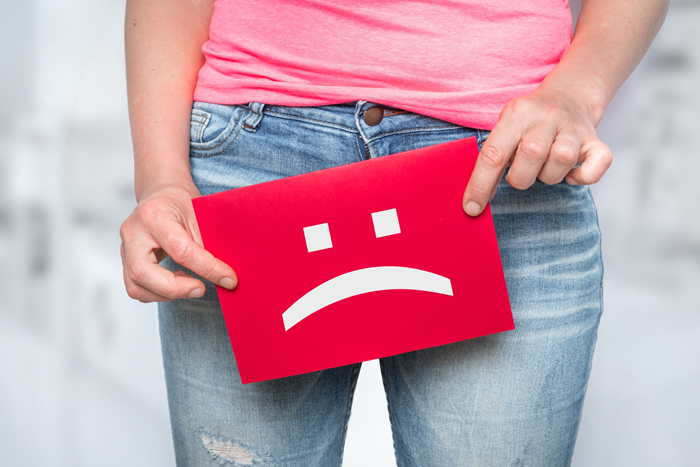Urine Incontinence Treatment & Diagnostics in Karol Bagh, Delhi
Urine Incontinence
When you lose control of your bladder, you develop urinary incontinence. Sometimes you may be able to empty your bladder. You may only notice minor leaks in other instances. Depending on the cause, the illness may be transient or severe.
To seek treatment, consult a urology doctor near you or visit a urology hospital near you.

What are the common types?
- Stress incontinence
Specific forms of physical movements might cause incontinence due to stress, such as when you're exercising, coughing, sneezing and laughing.
Such actions stress the sphincter muscle that retains urine in your bladder. - Urge incontinence
Impulse incontinence happens when a sudden and intense urge to urinate causes you to lose control of your bladder. You might not be able to make it to the restroom in time in such a case. - Overflow incontinence
If you are unable to empty your bladder during urination, you may experience overflow incontinence. Some of the pee left in your bladder may leak later. Dribbling is a term used to describe this sort of incontinence.
What are the symptoms?
You should visit a doctor if you have any of the following symptoms:
- Urine leakage during lifting, bending, coughing or exercising
- Urge to urinate suddenly and intensely, a feeling as though you won't be able to get to the bathroom in time
- Urine leakage without any warning signs
- Bed-wetting
What causes urine incontinence?
The common causes of chronic urine incontinence include:
- Overactive bladder muscles
- Side effects from surgery
- Weakened pelvic floor muscles
- Uncontrolled bladder due to nerve damage
- Bladder diseases such as interstitial cystitis (chronic bladder inflammation)
- Physical disability
- Side effects from surgery
- Obstruction
- Neurological disorders such as Parkinson's disease, multiple sclerosis or stroke
- Men: Prostate diseases
- Women: Pregnancy, menopause, childbirth, hysterectomy
When do you need to see a doctor?
If you lose control of your bladder and suffer any of the following symptoms, you should seek medical help right away:
- Difficulty speaking or walking
- Tingling or weakness
- Loss of eyesight
- Loss of consciousness
- Bowel incontinence
You can request an appointment at Apollo Spectra Hospitals, Karol Bagh, New Delhi.
Call 1860 500 2244 to book an appointment.
What are the risk factors?
- Obesity: This puts the bladder and surrounding muscles under stress.
- Aging: With age, the bladder and urethra muscles weaken.
- Medical conditions: Diabetes, renal illness, spinal cord damage and neurological disorders, such as stroke, are some of the diseases and conditions that raise the risk.
- Prostate disease: After prostate surgery or radiation therapy, incontinence may develop.
- Tobacco use: Tobacco use can cause a persistent cough, which can lead to incontinence episodes.
- Women, especially those who have had children, are more likely to experience stress incontinence than men.
What are the possible complications?
Chronic urine incontinence can lead to the following complications:
- Constantly damp skin can cause rashes, skin infections and blisters.
- Repeated urinary tract infections (UTIs) are caused by urine incontinence.
- Urine incontinence can harm your social, professional and personal life.
How can you prevent urine incontinence?
It's not always possible to avoid urinary incontinence. However, there are several things you can do to reduce your risk:
- Keep a healthy weight.
- Practice pelvic floor muscle training.
- Avoid or limit bladder irritants, including caffeine, alcohol and acidic meals.
- Consume extra fiber to avoid constipation, which is a common cause of urine incontinence.
What are the treatment options?
Depending on the reason for your incontinence, your healthcare professional may suggest a treatment strategy. Medication, surgery or other therapies may be necessary for an underlying medical problem.
Your doctor may advise you to undertake activities to improve bladder control, such as pelvic floor exercises or bladder training. To know more, consult a urology doctor in New Delhi.
Conclusion
Always inform your doctor about any signs or symptoms you're having and when these started showing up. Bladder control conditions are treatable. You and your doctor can together create a treatment plan that will help you restore bladder control and maintain your quality of life.
Exercises to strengthen your pelvic muscles will not only prevent you from experiencing incontinence problems, but they will also help you regain control of your bladder. Maintaining a healthy body weight might aid bladder management as well. Consult your doctor about the best exercise regime to keep your pelvic floor muscles healthy throughout your life.
Many people suffer from incontinence without seeking treatment. With the right therapy, many instances can be cured or managed. Urine incontinence is one of the most common reasons for making elderly persons institutionalized. The issue can lead to a decline in sociability, lower quality of life and sadness.
An "overactive bladder" (OAB) is a constant, urgent desire to pee. Urinary incontinence may or may not be a part of it. To diagnose OAB, urine incontinence or a mix of the two, your doctor will do a pelvic exam.
Our Top Specialities
NOTICE BOARD
CONTACT US
CONTACT US
 Book Appointment
Book Appointment


.svg)
.svg)
.svg)
.svg)








